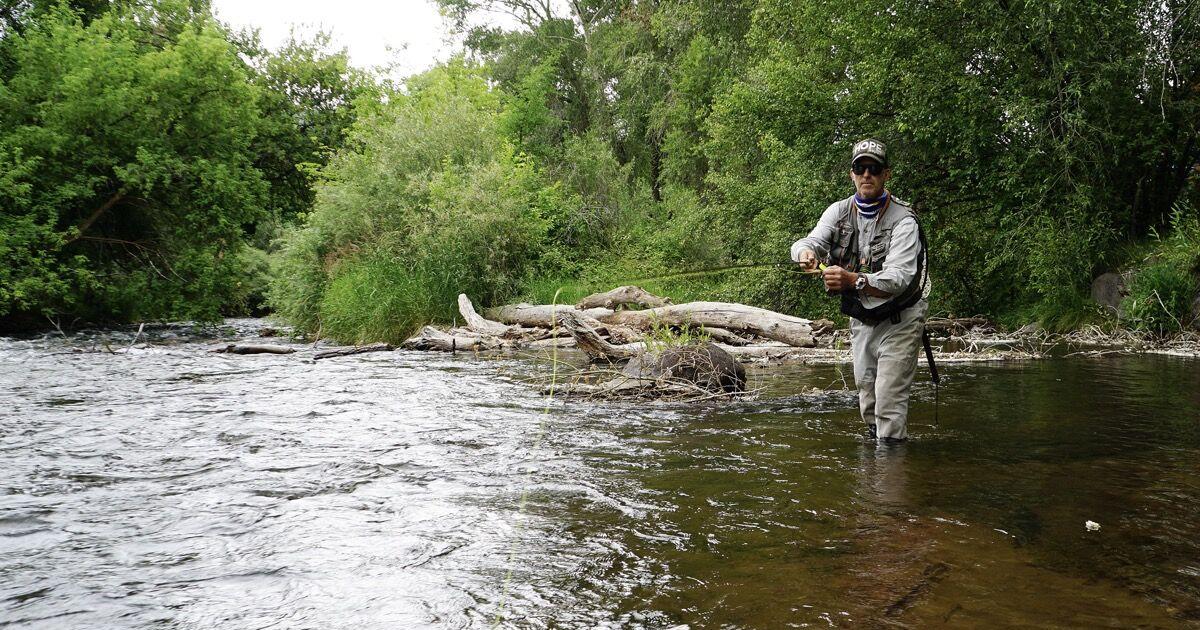
Who Adopted Whom
Rachel wanted to adopt an older dog that came from a bad background to give the dog some years of a happy life, She and Curly (name changed to Finnegan) met at a shelter where Finnegan had lived for three months after being transferred from another shelter and no one had requester to meet with him. After he spend five of his seven years in a holding situation so not having contact with humans was not new to him.
It would be nice to say Rachel and Finnegan got along famously from the beginning. It was not so. Finnegan sat in the corner of the fenced yard and barked and barked non-stop for hours at a time. Rachel admitted she was ready to give up when she met with a dog behavior expert. Rachel gave it one more try. Slowly Finn came around. He started wagging his tail when he saw her and accepted treats from her hand.
Rachel said, "I'm so proud of his willingness to trust humans again. Every day he is less fearful which makes me happy to see." Taken from Dumb Friends League "Pet Tales" Summer 2022
.Fishing From the Bank
Fishing from a boat or raft in the river is fun and often productive. As long as you stay in your watercraft there is no problem in Colorado. The problems arise when one fishes on foot from the bank. Do the owners of homes and property along the river have the right to put up "NO TRESPASSING" signs, in effect keeping fishers away from the river?
This is a complicated question with arguments for and against. Federal law states that beds of navigable rivers belong to the states. Navigable rivers is defined as waterways once used as highways for commerce.
In 1912 Colorado Supreme Court declared that the states waterways were "nonnaviigable" because rivers were rushing, steep, and canyon bound.
Land owners and companies came up with an unofficial agreement that declared a person(s) could float through private lands if their boat or raft did not touch the bed or bank of the river. One group of rafters was convicted for their raft occasionally scrapping the bottom against the bed in shallow spots of the river.
A fisherman who prefers to fish on foot has sued (2018) a land owning company and the State of Colorado saying the Arkansas River has been used as a highway of commerce and has records of items of commerce that were shipped on the river to Pueblo, Colorado. The case has been transferred from court to court and is due for a decision soon. If the fishermen wins it will open up several rivers to recreational use by the public in the future.
Rachel wanted to adopt an older dog that came from a bad background to give the dog some years of a happy life, She and Curly (name changed to Finnegan) met at a shelter where Finnegan had lived for three months after being transferred from another shelter and no one had requester to meet with him. After he spend five of his seven years in a holding situation so not having contact with humans was not new to him.
It would be nice to say Rachel and Finnegan got along famously from the beginning. It was not so. Finnegan sat in the corner of the fenced yard and barked and barked non-stop for hours at a time. Rachel admitted she was ready to give up when she met with a dog behavior expert. Rachel gave it one more try. Slowly Finn came around. He started wagging his tail when he saw her and accepted treats from her hand.
Rachel said, "I'm so proud of his willingness to trust humans again. Every day he is less fearful which makes me happy to see." Taken from Dumb Friends League "Pet Tales" Summer 2022
.Fishing From the Bank
Fishing from a boat or raft in the river is fun and often productive. As long as you stay in your watercraft there is no problem in Colorado. The problems arise when one fishes on foot from the bank. Do the owners of homes and property along the river have the right to put up "NO TRESPASSING" signs, in effect keeping fishers away from the river?
This is a complicated question with arguments for and against. Federal law states that beds of navigable rivers belong to the states. Navigable rivers is defined as waterways once used as highways for commerce.
In 1912 Colorado Supreme Court declared that the states waterways were "nonnaviigable" because rivers were rushing, steep, and canyon bound.
Land owners and companies came up with an unofficial agreement that declared a person(s) could float through private lands if their boat or raft did not touch the bed or bank of the river. One group of rafters was convicted for their raft occasionally scrapping the bottom against the bed in shallow spots of the river.
A fisherman who prefers to fish on foot has sued (2018) a land owning company and the State of Colorado saying the Arkansas River has been used as a highway of commerce and has records of items of commerce that were shipped on the river to Pueblo, Colorado. The case has been transferred from court to court and is due for a decision soon. If the fishermen wins it will open up several rivers to recreational use by the public in the future.
1776 Dance
In 1776 the most popular dance was the Inpendent - dance
The biggest jokester in George Washington’s army was Laughayette.
.
Was the Declaration of Independence written in Philadelphia? No, it was written in ink.
